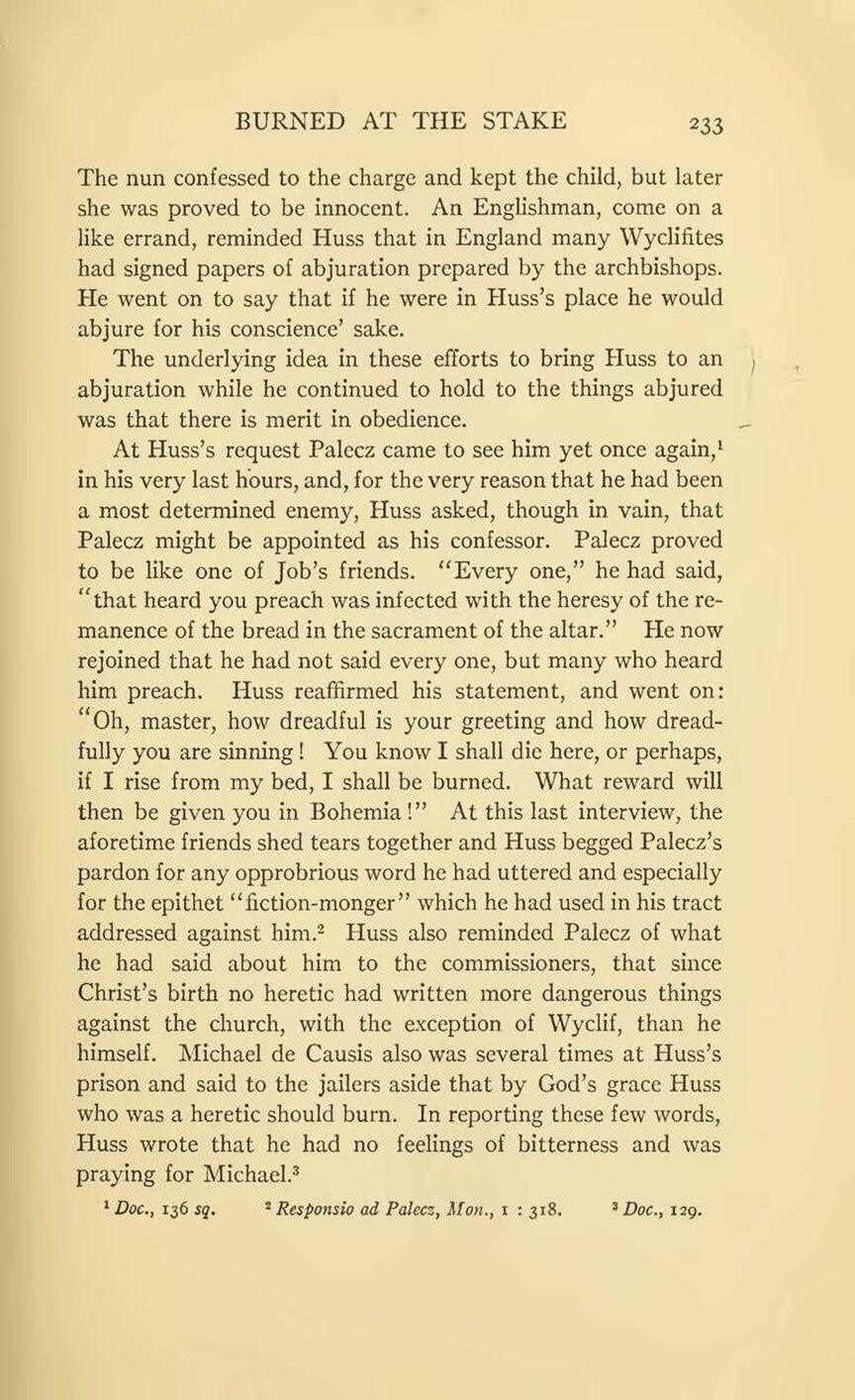The nun confessed to the charge and kept the child, but later she was proved to be innocent. An Englishman, come on a like errand, reminded Huss that in England many Wyclifites had signed papers of abjuration prepared by the archbishops. He went on to say that if he were in Huss’s place he would abjure for his conscience’ sake.
The underlying idea in these efforts to bring Huss to an abjuration while he continued to hold to the things abjured was that there is merit in obedience.
At Huss’s request Palecz came to see him yet once again,[1] in his very last hours, and, for the very reason that he had been a most determined enemy, Huss asked, though in vain, that Palecz might be appointed as his confessor. Palecz proved to be like one of Job’s friends. “Every one,” he had said, “that heard you preach was infected with the heresy of the remanence of the bread in the sacrament of the altar.” He now rejoined that he had not said every one, but many who heard him preach. Huss reaffirmed his statement, and went on: “Oh, master, how dreadful is your greeting and how dreadfully you are sinning! You know I shall die here, or perhaps, if I rise from my bed, I shall be burned. What reward will then be given you in Bohemia!” At this last interview, the aforetime friends shed tears together and Huss begged Palecz’s pardon for any opprobrious word he had uttered and especially for the epithet “fiction-monger” which he had used in his tract addressed against him.[2] Huss also reminded Palecz of what he had said about him to the commissioners, that since Christ’s birth no heretic had written imore dangerous things against the church, with the exception of Wyclif, than he himself. Michael de Causis also was several times at Huss’s prison and said to the jailers aside that by God’s grace Huss who was a heretic should burn. In reporting these few words, Huss wrote that he had no feelings of bitterness and was praying for Michael.[3]
